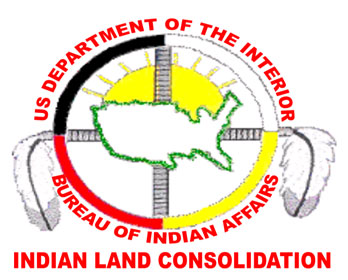Indian Land Consolidation Program (ILCP)

The Mission of the Program
To acquire as many fractionated interests as economically feasible; to consolidate these land interests into tribal ownership to enable better tribal utilization; management, promote and enhance tribal self-determination, economic, social, and cultural development needs while reducing government administrative costs.
The Indian Land Consolidation Center (ILCC)
The ILCP Director manages the Indian Land Consolidation Program (ILCP) and coordinates the acquisition program using a systematic strategy to expand the program to reservations nationwide. The Director establishes policies, develops and implements cooperative agreements, provides technical assistance, and provides oversight, direction, monitoring, and program evaluation. The Director also coordinates with the BIA, the Department of the Interior (DOI), Office of Management and Budget (OMB), Congress, and other government entities and Tribal entities.
Fundamental Program Concepts:
Willing sellers and payment for all title interests (surface and subsurface)
Purchase price is based on a fee simple ownership to determine fair market value.
The fair market value is based on the seller's proportionate share of the whole tract.
The tract is valued as if it were sole owned and in fee status.
Purchases are limited to fractionated trust or restricted interests.
The title is taken in the name of the respective tribe.
The revenue generated from the acquired interests must be used to re-pay the purchase price (the lien is on the income, not land)
The recovered revenue must be used to acquire additional interests on that reservation.
The federal government absorbs all costs of the transaction.
Benefits of Successful Consolidation:
Consolidation of fractionated ownership interests in the name of the Tribe/Band for benefit of all tribal members.
Increased opportunities for land use and business.
Creates more opportunities for land exchanges and/or partitionment with remaining owners.
Prevents loss of land and ownership from trust status
Long term savings to the government are realized through reduced administrative costs.


